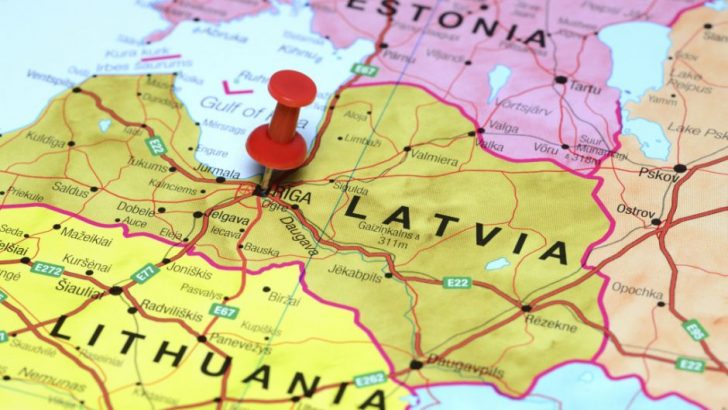Three Baltic countries prepare for papal visit
Pope Francis will travel to the eastern periphery of Europe to honour a Faith that withstood a Nazi invasion and five decades of communist dictatorship and now is striving to help people live in freedom as authentic Disciples of Christ.
The Pope’s visit from September 22-25 to Lithuania, Latvia and Estonia comes in the year the three Baltic nations are celebrating the 100th anniversary of their declarations of independence after World War I. While declared Soviet republics in 1940, the countries were occupied by the Nazis during World War II and then lived under Soviet rule from 1944 to 1990.
Bishop Philippe Jourdan, the apostolic administrator of Estonia’s tiny Catholic community, said the motto of the Pope’s visit to Estonia “is a well-known Estonian song, ‘Mu suda arka ules’, which means ‘Wake up my heart’. It is more or less what we all – Catholics, non-Catholics or non-religious people – are waiting for: that the Pope helps us to find a new hope in our heart and in our society, as was the case in the years immediately after the end of the Soviet time.”
Unmerciful Christians live like worldly pagans says Pope
Christians are not defined by their baptism but by whether they live their lives according to God’s command to love their enemies, Pope Francis said.
While it may seem easier to speak ill of an enemy, Christian logic goes in the opposite direction and follows “the folly of the Cross”, the Pope said in his homily during morning Mass at Domus Sanctae Marthae.
“Only the merciful resemble God the Father. ‘Be merciful, just as your Father is merciful’. This is the path, the path that goes against the spirit of the world,” he said.
The Pope reflected on the day’s Gospel reading from St Luke, in which Jesus tells his disciples to “love your enemies, do good to those who hate you, bless those who curse you, pray for those who mistreat you”.
The command to love and pray for one’s enemies “is the way to live like a Christian”, which entails mirroring God’s infinite love and mercy, the Pope explained.
However, he added, those who resort to gossiping and “the logic of insults” live “like a pagan with a spirit of worldliness” that seeks to destroy others.
Pope speaks of “theology of tenderness”
The words “theology” and “tenderness” seem very distant, said Pope Francis to the participants at a conference in Rome.
“In reality,” said Pope Francis at ‘The theology of tenderness’ conference in the Vatican, “our Faith ties them together inextricably. Theology is called upon to communicate the concreteness of the God of love. And tenderness translates, to the present day, the affection that God nurtures for us.”
The Pope said theology is called upon to accompany existential research. It cannot be reduced to a feeling but we must recognise that in many parts of the world, vital questions are approached through current emotions rather than social needs. This has not always been the case, and Pope Francis acknowledged that “one may not like it, but it is a matter of fact”.
Pope Francis asked what a theology of tenderness might entail, bringing up two points: “the beauty of feeling loved by God” and “the beauty of feeling like loving in the name of God.”
“To feel loved” he said, “is a message that in recent times has reached us more powerfully”, from mercy, the essential characteristic of the Holy Trinity and of Christian life.


